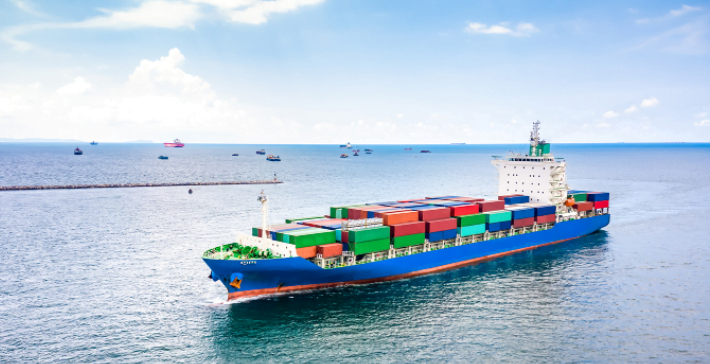The IMO Sub-Committee on Ship Design and Construction (SDC) held its 8th session from January 17 to 21, 2022. ABS provides an overview of the more significant issues progressed at this session, highlighting that the Sub-Committee finalized draft mandatory safety regulations for ships carrying more than 12 industrial personnel (IP); finalized the draft explanatory notes to the interim guidelines on the second-generation intact stability criteria and also; finalized revised draft performance standards for water level detectors.
Key Developments of IMO SDC 8
-New SOLAS Chapter XV – Carriage of Industrial Personnel / IP Code
-Amendments to ESP Code
-Workplan on Underwater Noise Reduction
-Asbestos on Offshore Units
-Emergency Towing Equipment for Ships Other Than Tankers
New SOLAS Chapter XV – Safety Measures for Ships Carrying Industrial Personnel
The Sub-Committee finalized a draft new SOLAS Chapter XV addressing cargo ships and high-speed cargo craft of 500 gross tonnage and upward, carrying more than 12 industrial personnel. For the purposes of this new chapter, industrial personnel are persons transported or accommodated on board for the purpose of performing offshore industrial activities (construction, maintenance, decommissioning, operation or servicing of offshore facilities related, but not limited, to exploration and exploitation of resources by the renewable or hydrocarbon energy sectors, aquaculture, ocean mining or similar activities) performed on board other ships and/or offshore facilities. Wherever the number of industrial personnel onboard appears as a parameter for application of a regulation, it shall be taken to mean the aggregate number of industrial personnel, special personnel and passengers carried onboard (where the number of passengers shall not exceed 12 persons).
This amendment to SOLAS will coincide with the adoption of the Code of Safety for Ships Carrying Industrial Personnel, or IP Code. The new SOLAS Chapter XV will be structured to clarify the application of the IP Code to vessels normally certified under SOLAS and the HSC Code.
Code of Safety for Ships Carrying Industrial Personnel (IP Code)
Using SOLAS and the 2000 HSC Code as a basis for regulatory compliance, the IP Code provides goals, functional requirements, and additional regulations aimed to facilitate the safe carriage and transfer of industrial personnel by addressing additional risks connected to such operations.
The supplemental regulations of the IP Code address the following subjects:
1) Safe transfer of personnel
2) Subdivision and stability
3) Machinery installations
4) Electrical installations
5) Periodically unattended machinery spaces
6) Fire safety
7) Life-saving appliances 8) Dangerous goods
The draft IP Code will be progressed to MSC 105 (Apr-2022) for further consideration and approval, and subsequent adoption at MSC 106 (Nov-2022). Additionally, discussion will continue at SDC 9 to consider creation of an Explanatory Notes document to accompany the IP Code, and amendments to the SPS Code to clarify the applicability of these two codes.
Development of Functional Requirements for SOLAS Chapter II-1
As part of ongoing work to develop a new edition of the Revised Guidelines on Alternative Design and Arrangements for SOLAS Chapters II-1 and III (MSC.1/Circ.1212/Rev.1), the Sub-Committee at this session has finalized guidelines on the goals, functional requirements and performance expectations for SOLAS Chapter II-1 Part D (Electrical Installations). The goal of this guidance for Part D on alternative design and arrangements is to ensure adequate availability of electrically-powered services for safe operation of the ship and protect the persons on board from hazards of electrical origin in normal and emergency conditions.
A correspondence group will be established to continue making progress on similar guidelines for SOLAS Chapter II-1 Part C (Machinery Installations) and Part E (Unattended Machinery Spaces). Further discussion on these Guidelines will resume at SDC 9 (Jan-2023).
Proposed Unified Interpretation of Regulation 37(3) of the 1988 Load Lines Protocol
The Sub-Committee agreed to a proposed unified interpretation of regulation 37(3) of the 1988 Load Lines Protocol, which currently does not provide clarity on the superstructure reduction for freeboard calculations for type ‘B’ ships or ships with reduced type-B freeboard with a forecastle of an effective length of less than 0.07L.
Proposed Unified Interpretation of the Amendment to Stability/Loading Information in Conjunction with the Alterations of Lightweight
The Sub-Committee agreed to a proposed unified interpretation of SOLAS regulations II-1/5.4 and II-1/5.5, clarifying that in cases where the lightship properties of a ship changed beyond the specified deviation limits, the instruments/documents (such as loading manual, loading computer and stability computer) utilizing the lightship properties should be amended based on the new lightship properties, and the lightweight calculation should also be verified on board.
Proposed Interpretation of Requirements for Noise in Workshops
The Sub-Committee agreed to a proposed unified interpretation of paragraph 4.2.1 of the Code on Noise Levels On Board Ships (resolution MSC.337(91)) to clarify the application of noise limits for “workshops other than those forming part of machinery spaces”. Such spaces are to be understood to be spaces which are separated from the engine room with bulkheads extending from deck to deck, which may include access doors of the equivalent acoustic insulating properties as the bulkhead. Workbenches and workstations located inside the machinery space should not be considered as “workshops other than those forming part of machinery spaces”. Noise level limits should be assigned accordingly for these two types of workshops.
Workplan on Underwater Noise Reduction
Following MEPC 76, the Sub-Committee was tasked to review the 2014 Guidelines for the Reduction of Underwater Noise from Commercial Shipping to Address Adverse Impacts on Marine Life (MEPC.1/Circ 833), and to develop a work plan that will organize the IMO’s efforts in mitigating the consequences of underwater noise in the marine environment.
The work plan will include:
1) identifying barriers to uptake and implementation of the Guidelines;
2) identifying measures to prevent and reduce underwater noise from ships;
3) identifying an acceptable means of measuring existing ship noise profiles;
4) identifying areas that require further research; and
5) amending the Guidelines and identifying next steps.
In discussion, it was acknowledged that characteristics of underwater radiated noise (URN) may vary from one region to the next, and the sensitivity of local fauna may vary between regions as well, and therefore additional studies may January 24, 2022 Page 6 of 7 be needed to determine appropriate steps for URN reduction.
It was also noted that upcoming regulatory activity related to reduction of greenhouse gases may have a positive effect on overall URN (namely, the implementation of EEXI and CII, which may result in an increasing number of vessels operating their engines at reduced power), and steps should be taken to better understand this impact. A correspondence group has been established to make progress on this subject. Further discussion on this matter will resume at SDC 9 (Jan-2023).
In the meantime,
BIMCO has recently highlighted the need for IMO to agree on a mitigation plan in order to minimize the short and long-term effects on marine life.































































